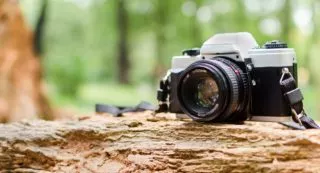How Are Memories Formed? The Science Behind
The precious memories we store in our minds, pictures, stories and memorabilia give meaning to our lives. Some say that our lives are nothing but a collection of memories. They provide us with context and reason to be. But, how are memories formed?
Memory in psychology is a complex process of continuously interpreting, storing and retrieving information. Sometimes, we look back on that information and see entire chapters of our lives. It’s just like when Facebook reminds you of a 5-year or 7-year old post. You see a past version of you and re-live part of that human experience.
How are Memories Formed in the Brain: A definition
The Merriam-Webster online dictionary defines memories as “the power or process of reproducing or recalling what has been learned and retained especially through associative mechanisms”. This is pretty much the memory definition in psychology. We could also add that memory formation is guidance for future actions.
There are different types of memory in psychology. For example, the emotional memory systems in the brain imply the learning and storage of information related to events that bear an emotional significance for each individual.
The emotional memory also receives sensory inputs cues. You have probably experienced already how the smell of a particular perfume takes you back to a specific moment in time. A song or a picture can also bring back sensory memories.
Why are Memories Important?
So, now that we’ve pretty much answered the question of “how are memories formed” let’s look at the “why”. Why are memories so important to us?
We are always taking pictures of our experiences, framing them, and hanging them on our walls. We tell stories of past adventures, we reminisce a lot. Why?
First of all, memories are important because they provide us with lessons from the past, so we can grow and develop our personalities over the years.

Memories are also about our dear ones, the people who are or have been in our lives. Moreover, memories are an essential legacy we leave behind. They’re for future generations to learn and use in life.
The importance of capturing memories is beyond dispute, and we should learn to appreciate our memories more!
Where and How are Memories Formed?
Ok, so the next question is, where is memory stored in the brain? The simple answer is – in the pre-frontal lobe, amygdala and hippocampus. Well, that’s a little bit too specific, isn’t it?
Our brain stores memories in different ways. There are short-term memories that help us navigate day-to-day life. They are basically our “working memories”. And then, there are the long-term memories, also known as semantic memories. Let’s take a closer look at these stages of memory creation.
The 3 Stages of Memory Creation
So, psychologists have singled out three stages of memory creation:
- The Sensorial Stage
- The Short term memory
- The long term memory
The Sensory memory map is about how our brains make memories. During this sensory stage, our brain passively collects information through our senses. (aka “iconic memory” and “echoic memory”).
Iconic memory is when you look at your phone and then look away but can still remember the exact image that was on your screen.
Echoic memory is when you talk with someone and ask them to repeat themselves. However, just before they repeat it, you’ve already understood it, like the echo of those words come back to you with a short delay.
After the sensory stage of making memories, there is also the attention stage. After something gets our utmost attention, we can begin to form short-term memories.
We employ our short term memory capabilities when we want to temporarily remember a phone number or a specific code, address etc.
One type of short term memory is the “working memory”. This is where our brains store information with the sole purpose of using it in specific actions. It’s like learning a mathematical formula so that you can apply it to certain mathematical computations.

When you’re searching for tips and tricks on how to improve memory, you’re actually asking about this working memory. And yes, we can improve the short term memory capacity.
As for the long term memory definition in psychology, it is different from what you’d expect. Although long-term memory allows information to remain in the brain for more extended periods, it will not stay there indefinitely. In fact, there are different types of long term memory.
The Main Types of Long Term Memory
Long term memories can stay in the brain for a day, a week or they can last us a lifetime. The duration of long term memory is variable.
Long term memory formation involves the working memory that changes the brain’s neural wiring. Neurons and synapses create new connections. However, some specialists suggest that long term memories are also constantly evolving. We add or retrieve specific information and continuously rewrite the memories.
This is why sometimes we might not remember the whole picture or instinctively change some aspects of it. Two people who have lived through the same experience may tell different stories about it.
Moreover, long-term memory can be classified as such:
- The implicit memories (the things we do automatically after some time, like riding a bicycle or driving a car)
- The explicit memories (which include the episodic and the semantic memories).
The episodic memory psychology definition is the following – the ability to recall and re-experience specific chapters of our past.
The semantic memory psychology definition is – the meaning, understanding and general knowledge of the world, from concepts to specific experiences.
We hope all of these answer your question of how are memories formed in the brain.
As you can see, it is a complex process, but it gives meaning to our lives. At Memory Box, we treasure your memories and want to help you showcase and protect them for years to come.



